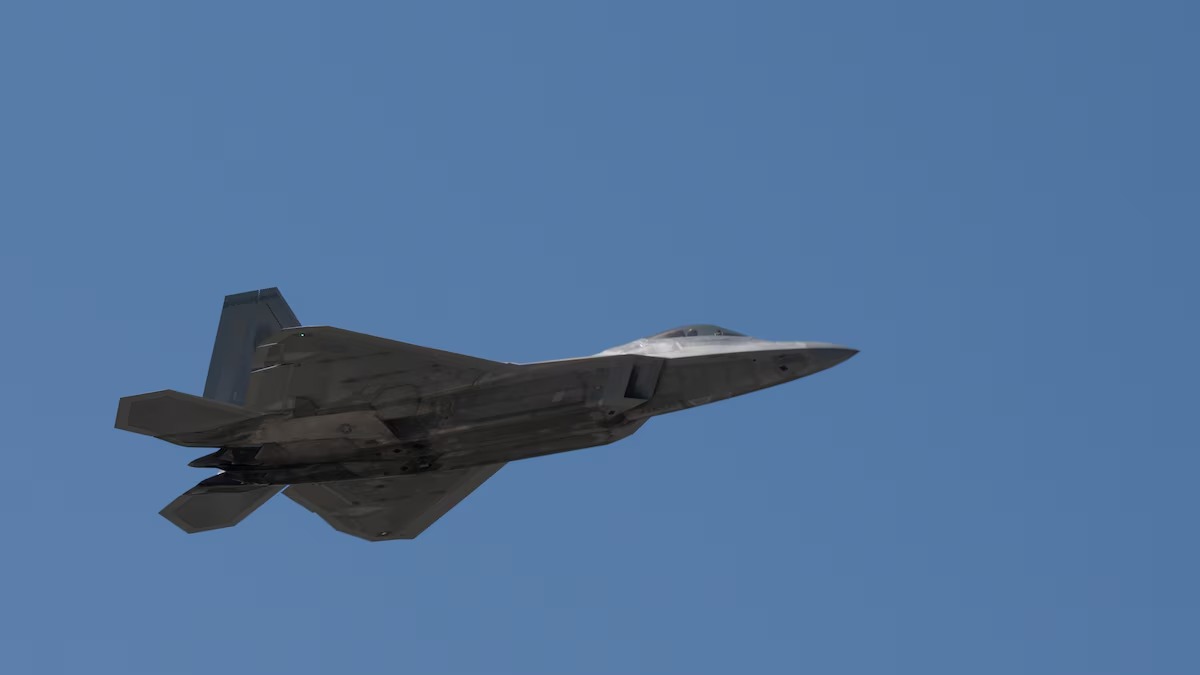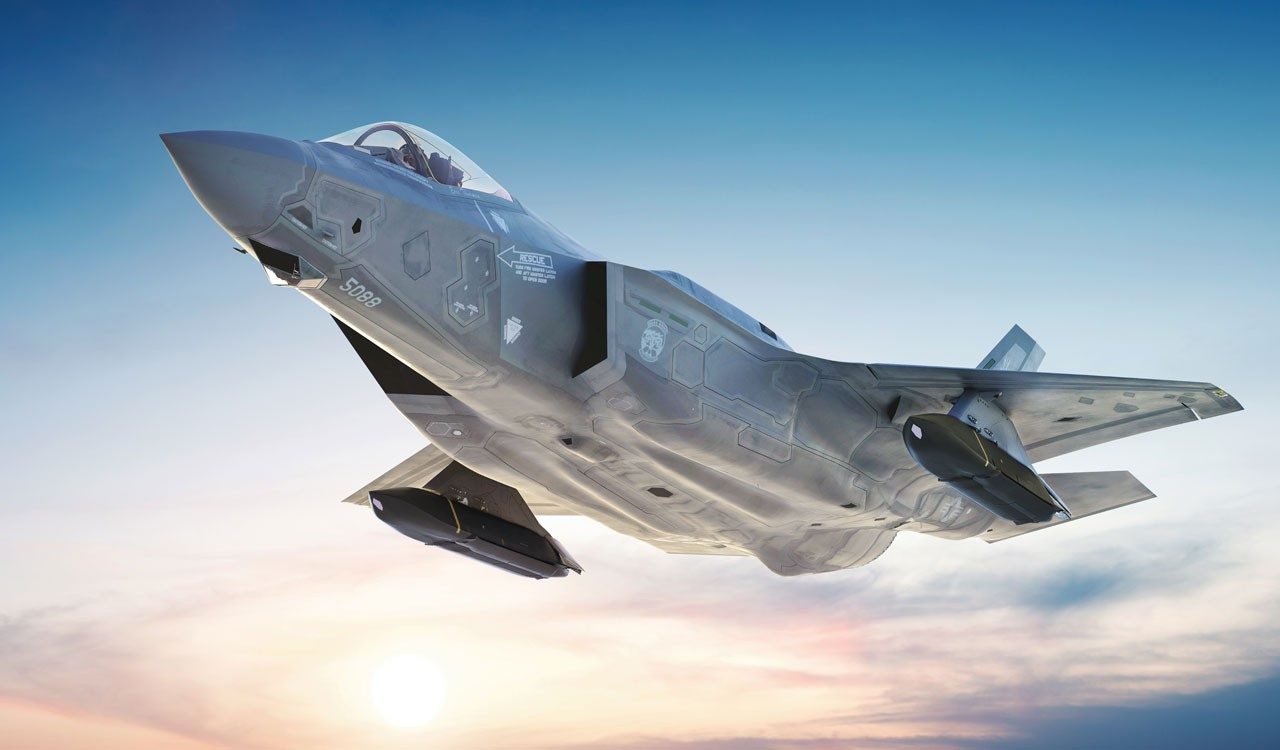In a powerful display of military might, South Korea and the United States conducted joint air drills today, featuring approximately 30 aircraft, including the US F-22 Raptor. This marks the first time the F-22 has participated in a squadron-level exercise since its inception in 1997.
The drills, conducted over an eastern region of South Korea, were aimed at enhancing air interdiction capabilities. These operations are designed to delay or disrupt enemy forces before they can pose a threat to friendly forces.
This exercise is part of the five-day Buddy Squadron exercise that began on June 24. According to the Korea Times quoting the Air Force, “It marked the first time the F-22 participated in the squadron-level exercise first held in 1997.”
The joint drill underscores the allies’ commitment to maintaining readiness and deterrence against North Korean threats. However, the exact number of F-22s that participated in the latest drill remains unclear.

This latest drill is the second exercise this year involving the South Korean F-35A and US F-22s. Both jets, categorized as fifth-generation fighters, are renowned for their stealth capabilities and advanced avionics, making them some of the most formidable aircraft in the world.
The joint air drills follow a rare dogfighting exercise on May 16, where a pair of U.S. Air Force F-22 Raptors engaged in aerial combat training with South Korean F-35As over the Korean Peninsula, as previously reported by the EurAsian Times.
Four Raptors, assigned to the 19th and 199th Expeditionary Fighter Squadrons of Joint Base Pearl Harbor-Hickam in Hawaii, arrived last month at Kunsan Air Base, South Korea.
While the presence of Raptors in or near South Korea is unusual, it is not without precedent. In February 2023, B-1 Lancer bombers and F-22 Raptors flew alongside South Korean F-35s over the Yellow Sea.
In December 2022, F-22s, along with Korean F-35 and F-15K fighter jets, escorted a B-52 bomber near the waters off the peninsula. The Raptors also featured in Seoul’s defense exhibition in October 2023.
Escalating Tensions
The timing of the June 26 exercise is significant, coming in the wake of persistent North Korean military provocations, including back-to-back launches of trash-carrying balloons and a failed ballistic missile test, possibly involving a hypersonic missile.
In recent weeks, tensions on the Korean Peninsula have escalated significantly as North Korea launched over 1,000 balloons toward South Korea since May.
Pyongyang claims these balloons are reprisals against South Korean activists who have been sending leaflets critical of North Korean leader Kim Jong Un.
A South Korean analysis of these balloons, particularly those sent between late May and early June, revealed that the balloons carried soil containing parasites, which the South Korean Ministry of National Defense suggested might have originated from human feces due to detected human genes.
Additionally, the balloons included damaged clothing from a South Korean brand and items with imitations of Disney characters, signaling North Korea’s apparent hostility towards South Korean goods.
In response, the South Korean military has warned of potentially restarting loudspeaker propaganda broadcasts along the border, a practice paused in recent years. Whether Seoul follows through on this threat depends on North Korea’s future actions, the military stated.
Moreover, South Korea recently conducted live-fire drills along its disputed western sea boundary with North Korea. These exercises marked the first such drills since Seoul suspended a 2018 agreement to reduce front-line military tensions earlier this month.
Amid these heightened tensions, a U.S. Navy aircraft carrier arrived in South Korea over the weekend, ahead of planned trilateral exercises with South Korea and Japan in the waters near the peninsula.

This deployment is part of a series of U.S. military moves intended to reaffirm Washington’s “ironclad” commitment to its treaty ally in South Korea.
Further strengthening their alliance, U.S. and South Korean officials signed a new memorandum of understanding on June 24, focusing on diplomatic intelligence sharing and analysis. This agreement underscored the deepening collaboration between the two nations in addressing regional security challenges.
In a related development, officials from Japan, South Korea, and the United States held a trilateral call and issued a joint statement expressing grave concern over the growing security cooperation between Russia and North Korea.
The statement condemned the military cooperation between Pyongyang and Moscow, particularly the continued arms transfers from North Korea to Russia, which they argued prolong the suffering of the Ukrainian people, violate multiple United Nations Security Council Resolutions, and threaten stability in both Northeast Asia and Europe.
- Contact the author at ashishmichel(at)gmail.com
- Follow EurAsian Times on Google News




